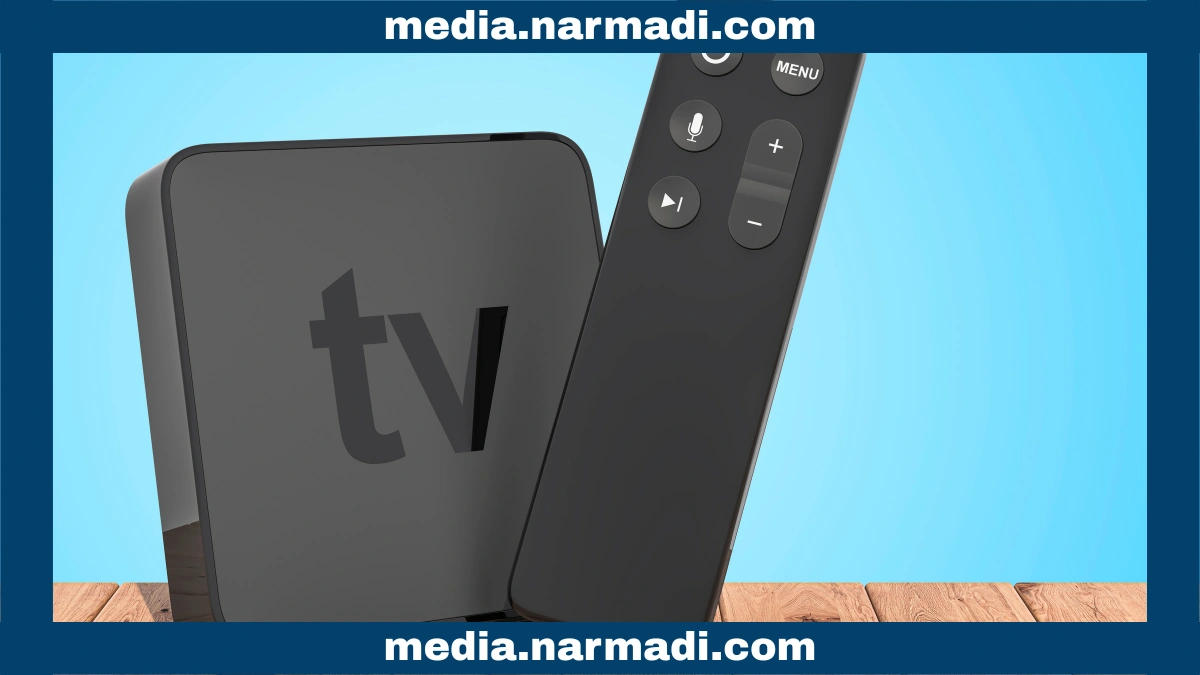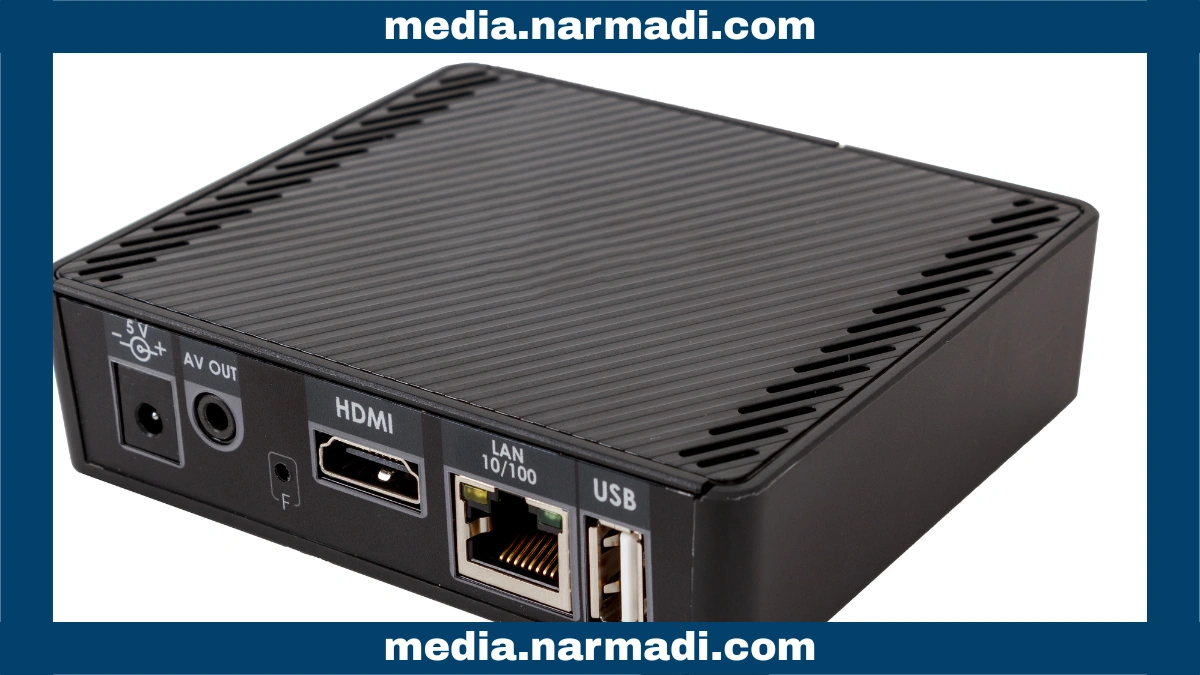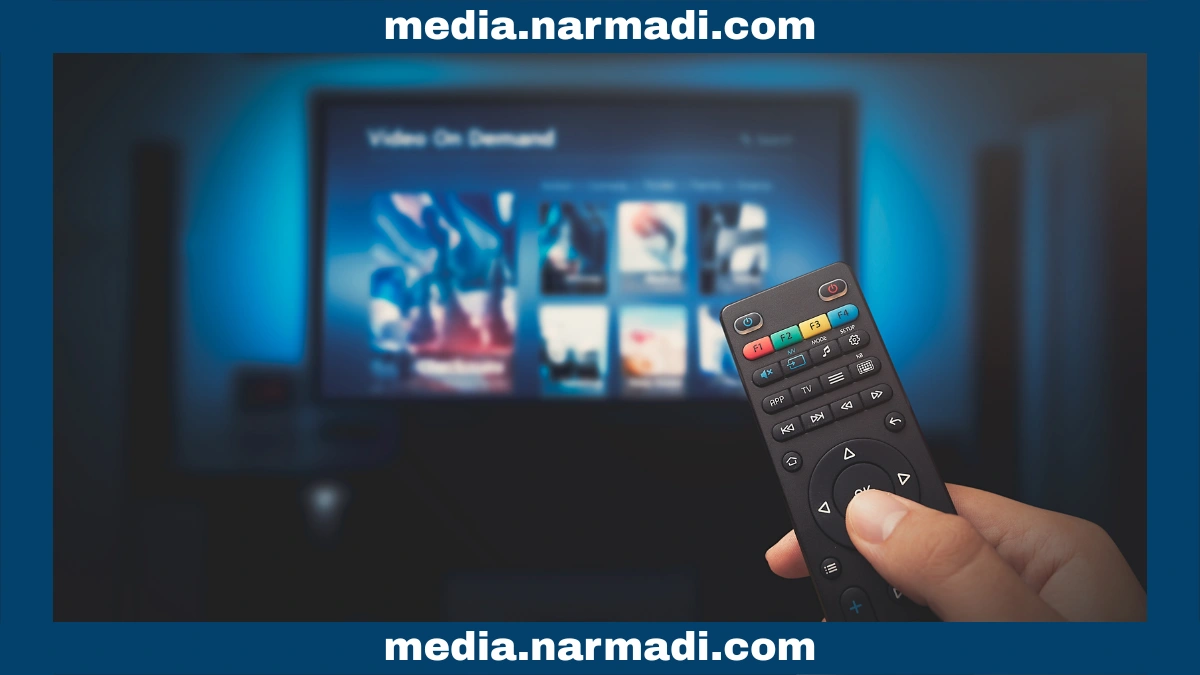Various types of set-top boxes have their own functions and advantages. One of them is the Internet Protocol Television (IPTV) set-top box, which captures digital signals via an internet connection.
IPTV set-top boxes play a crucial role in enabling analog televisions to continue receiving digital signal broadcasts. This also extends the lifespan of non-smart televisions.
This article explains IPTV set-top boxes, starting with their definition, how they work, and the differences between them and DVB-T2.
What is an IPTV Set-Top Box?

IPTV is a type of set-top box that allows users to access digital TV content via an internet connection. This will enable users to watch video on demand (VOD) and other streaming content.
IPTV Set-Top Boxes feature voice search, remote control, and the ability to integrate with smart home systems. These devices offer advantages in terms of flexibility, good picture quality, clear sound, and portability.
How Does it Work?

The operation of an IPTV set-top box is not overly complicated. Simply put, it receives digital signals from the internet and converts them into a format that can be displayed on a screen. Here is how it works in more detail:
- Connect to the internet: The set-top box needs to be connected to the internet via a router to receive content data.
- Receiving and processing data: Video and audio data streams, in the form of IP data packets, are received and processed over the internet.
- Decoding and decrypting: The set-top box decodes and decrypts the data packets into a format that can be displayed on a TV screen.
- Displaying content: Once processed, the content will appear on the TV screen, allowing you to watch live broadcasts, select movies from the VOD catalog, or use other interactive features.
To function optimally, an IPTV set-top box requires a stable internet connection. The better the internet network, the better the viewing quality you will get.
The Advantages
Several factors contribute to the increasing popularity of IPTV set-top boxes in today's digital age. These factors include the advantages they offer. Here are some of the advantages:
More content

With a digital broadcast base via the internet, IPTV set-top boxes offer content that is not limited to local television broadcasts. These devices enable you to access international content through streaming services. You can even download supporting applications, such as Netflix, HBO, and Prime Video.
Superior image and sound quality
The internet indeed influences the quality of IPTV set-top boxes. A good connection will enable you to view content in high resolution with clear, sharp images up to 4K (UHD). This will make you comfortable watching shows for long periods of time.
Flexibility of use
The purpose of this device is to be used on various devices, providing you with the experience of having a smart TV. This device is compatible with any TV that features an HDMI or RCA port. That way, without buying a new TV, you can enjoy more updated features.
Time control
Because it is internet-based, applications and entertainment channels can be automatically updated as needed. You can pause, rewind, or fast forward broadcasts. You can also record programs to watch later without depending on a fixed broadcast schedule.
The Differences Between DVB-T2 Set-Top Boxes
What is the difference between IPTV and DVB-T2 set-top boxes? Both differ in several aspects, including signal sources, main functions, and subscription costs.
- IPTV set-top box: Requires a stable internet signal source to turn a regular TV into a smart TV with streaming and app capabilities. It can access content from around the world through streaming apps such as Netflix, HBO, and Prime Video. However, it requires a subscription fee depending on the streaming service used.
- DVB-T2 set-top box: Uses a UHF/VHF antenna to capture terrestrial digital signals to turn analog TVs into digital TVs. It can access all digital broadcasts for free without requiring a subscription fee.
Both have their own advantages. If you only want to watch digital TV broadcasts for free, DVB-T2 is the right choice. However, if you want to access international streaming services with a small subscription fee, then IPTV is an attractive option. [UN]